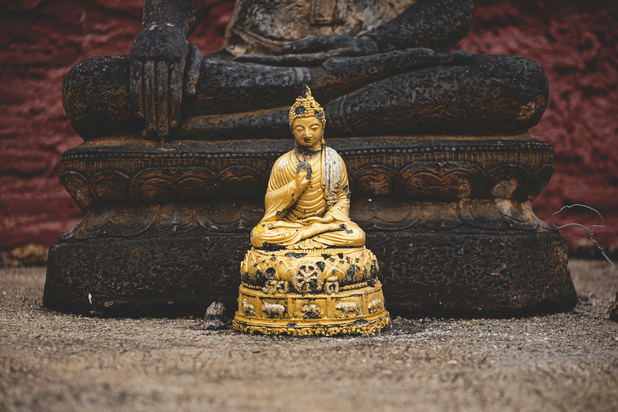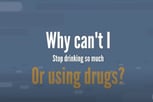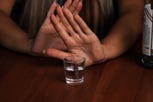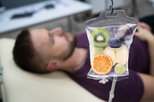The field of addiction recovery is a constantly changing field. More and more routes to recovery are opening up, one of which is the Eight-Step Recovery program.
Co-founded in 2014 by Dr. Valerie (Vimalasara) Mason-John M.A (hon.doc), who now lives in Canada, and Dr. Paramabandhu Groves, who is based in the U.K. Eight-Step Recovery is a 5-year-old Buddhist-based recovery program and book, inspired by her own experience of trauma and addiction.
Having been abandoned by her mother at just six weeks old, Vimalasara spent all of her childhood in different care homes. There, she experienced regular sexual abuse and was eventually sent home to live with her biological mother at the age of 11. However, that didn’t end the trauma; rather, it added to it instead. At home, the abuse continued as well—this time, both physical and sexual.
At the age of 14, she recounts, “I came off the rails.” After enduring so many years of trauma and abuse, Vimalasara eventually went to live on the streets. Ironically, out on her own, she felt safer than some of the places she had been placed into by the care system—places that were supposed to be a refuge to her.
However, at 15, Vimalasara ended up in juvenile prison and developed an eating disorder while she was there. She describes her disorder as “a way of purging the feelings that I had because of the abuse I had suffered.”
At this point, she knew she had to look for a more healthy way of managing her feelings of trauma. She went into a specialized therapy for eating disorders thinking, “If this doesn’t work, I don’t know what will.” But in the end, “I wanted recovery more than my disease,” she says.
By the time she came to Buddhism, she was bulimic and anorexic and addicted to uppers. It was in the meditation halls that she describes that “my addiction to uppers and to champagne fell away.” At that moment, Vimalasara attempted to begin an ethical practice of abstaining from intoxicants. It certainly wasn’t easy for her and she had to go around and around before she was able to abstain long-term, but she credits the eight steps as what helped her to achieve recovery.
Below is an outline of the steps that Vimalasara created for the Eight-Step Recovery program.
Step 1. Accepting that this human life will bring suffering.
We must learn to recognize and be with the pain through mindful awareness.
Step 2. Seeing how we create extra suffering in our lives.
Every time we move away from pain, we create more suffering in our lives.
Step 3. Recognizing impermanence shows us that our suffering can end.
Embrace the fact that there is an end to suffering, that everything in our lives is impermanent, including our addictions, compulsive and obsessive behaviors.
Step 4. Being willing to step onto the path of recovery, and discover freedom.
We need to be willing to step onto the path of recovery and connect to a vision that is greater than our addiction or compulsive behaviors.
Step 5. Transforming our speech, actions, and livelihood.
We learn to transform our speech, actions, and livelihood. With an attitude of kindness, we review our past actions. We acknowledge them and their impact on us and others. We make amends and plan to do something different.
Step 6. Placing positive values at the center of our lives.
We place positive values at the center of our lives, values that will support us in our recovery. We recognize that our addiction is a false refuge and cannot bring about true happiness and contentment.
Step 7. Making every effort to stay on the path of recovery.
We make every effort to stay on the path of recovery. We are likely to have to feel the unbearable pain of not turning to our addiction. We ride the harrowing waves of recovery with calm and know that every time we surf the pain of recovery, the waves will become calmer.
Step 8. Helping others to share the benefits I have gained.
We learn to help others from a place of kindness and share our recovery with others.
There are Eight-step meetings in the UK, Finland, Canada, Mexico, and the United States. In her own words, Vimalasara says, “Don’t let God, or Mindfulness or Buddhism get in the way of your recovery. People with addictions are very good at finding reasons why they shouldn’t clean up, or blaming people for their addiction, or staying in denial.”
Vimalasara admits the program is still small, but it is growing. She hopes that in time, the Eight-Step program will be as widely available and recognized as other recovery programs. Most recovery program for addictions have been founded by Americans, and this is a program that has been founded and designed by two British Buddhists.
If you are interested in finding out more, you can visit the website or connect with the group on Facebook.
|
If you or someone you know is seeking help from addiction, please visit our directory of treatment centers or call 800-891-8171 to speak to a treatment specialist. |








